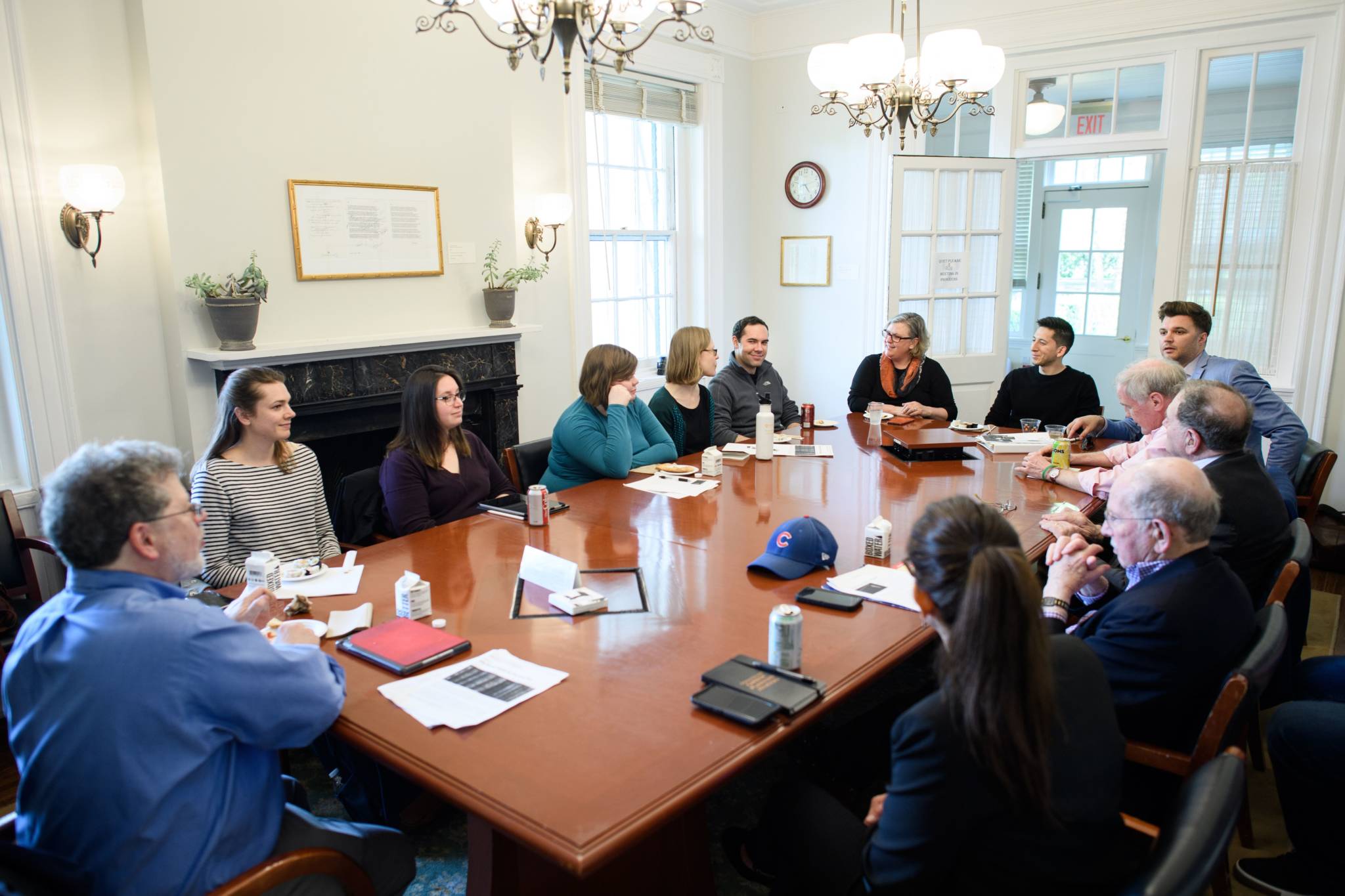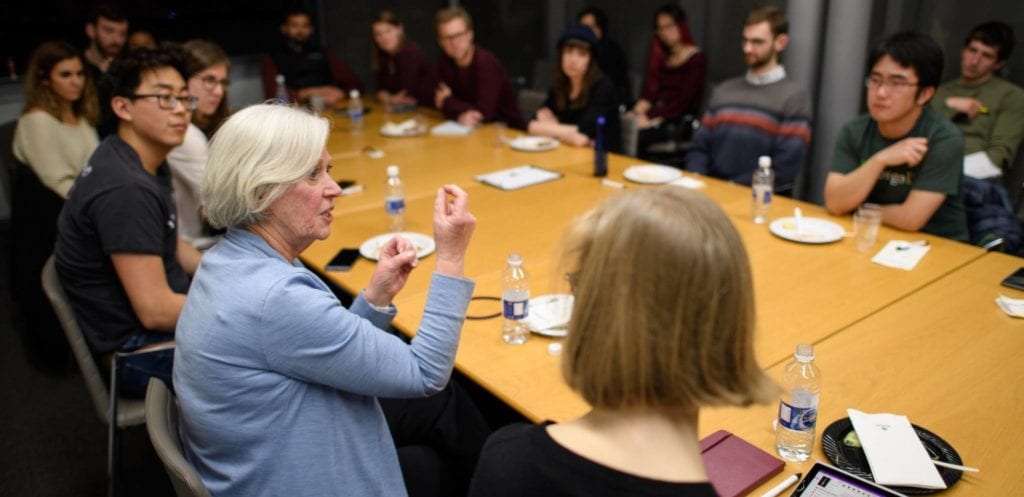GradFutures Learning Cohorts are co-curricular learning opportunities designed for small groups of graduate students, aimed at broadening graduate student professional and career development around topics and questions of shared interest.
In a joint venture, the Humanities Council and the Office of the Dean of the Graduate School created three new humanities-related cohorts for graduate students in academic year 2019-2020.
These cohorts were inspired by the Humanities Council’s discussion group on “American Higher Education,” now in its third year.
Academic Year 2019-20
LEADERSHIP IN THE ARTS AND PUBLIC HUMANITIES
This cohort aims to create a space for graduate students to explore a variety of career options beyond the academy, to think about how the skills acquired in a graduate program could be applied towards different careers, and to discuss the changing nature of the job market and careers in arts-related industries.
The first session is entitled “Arts, Humanities, and the Public: Access, Diversity, and Inclusion.” Featured speakers are Cara Bramson, the Student Outreach and Programming Coordinator at PUAM, and Elena Sauceda-Peeples, the Program Director of the Easton Trenton Collaborative, a community development and organizing initiative in the East Trenton neighborhood of Trenton’s North Ward.
Click here for more information and to RSVP for the inaugural meeting.
AMERICAN HIGHER EDUCATION: ITS HISTORY, CULTURE, AND CHALLENGES

This workshop takes a long view of American higher education, framing its problems and prospects in historical terms.
After being established in the Humanities Council, the workshop in its third year is now a joint venture with the GradFutures initiative of the Graduate School. The program was offered to 15 graduate students who met every few weeks from October through early December, with two site visits, to a state college and a community college, after the winter break, followed by a final social gathering early in the spring semester.
For more information, visit: https://gradfutures.princeton.edu/AmericanHigherEdGLC
TELL ME MORE: HUMANIZING OUR RESEARCH

Tell Me More is a six-part series for graduate students who wish to heighten their professional impact by conveying the personal and social significance of their research to those who do not share their expertise. Meeting monthly from 6:00-7:30 p.m. between January and June, 2020, distinguished members of Princeton’s faculty help students engage successfully with an audience that transcends the boundaries of your disciplines and the academy itself. Hosted by John S. Weeren, founding director of Princeton Writes. For more information, visit: https://gradfutures.princeton.edu/HumanizingOurResearch
January 15
Shirley M. Tilghman (President of the University Emerita; Molecular Biology and Public Affairs): “Sharing the Wonder of What We Do”
February 5
William A. Gleason (English and American Studies): “Writing Transparently”
March 4
Tamsen O. Wolff (English): “Speaking with Our Bodies”
April 8
William C. Jordan (History): “Engaging the Academy at Large”
May 6
Derek B. Lidow (Keller Center): “Pitching Our Ideas to Non-Academic Partners”
June 17
Tracy K. Smith (Lewis Center for the Arts): “Becoming a Public Intellectual”
21ST CENTURY SCHOLARLY COMMUNICATIONS
This cohort focuses on academic publishing, digital and public humanities, data-driven projects in the Humanities and Social Sciences, and the role of libraries, non-profits, and other partners in the circulation of research and scholarship. The interdisciplinary discussions will be fueled by engaging, research-based readings, as well as by the presence of visiting editors, scholars, and practitioners. For more information, visit: https://gradfutures.princeton.edu/21st-century-scholarly-communications
Topics:
- Careers in Publishing, New Media, and related fields
- Financial Ecosystems of Publishing World
- Community Partnerships
- Leadership & Entrepreneurship in the Publishing World
- The Public Humanities/Digital Humanities
- Changes in journals publishing and Open Access
- New media (podcasting/op-eds)
- New Journals Initiatives (with partners like MIT Press)
- Libraries and Scholarly Communications















